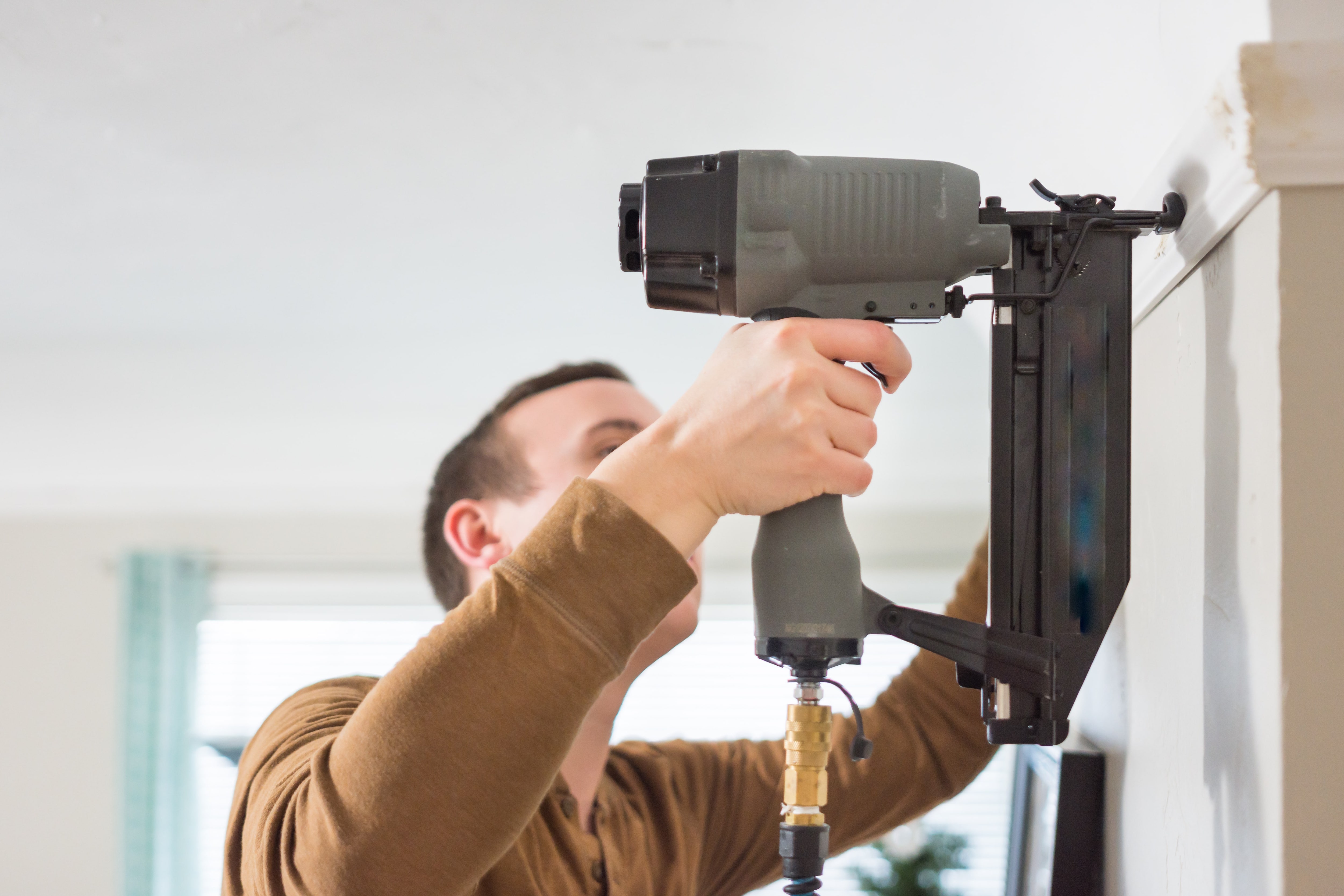
Baseboards are both stylish and functional. If you’re ready to add them to your space, explore the cost to install baseboards and start budgeting here.
The average cost to install hardwood stairs is $2,400


Hardwood stairs cost between $750 and $30,000, with an average of $2,400.
Prices vary based on the subfloor condition, whether to refinish or replace, and the type of wood finishing.
Popular materials, such as red oak, nails, glue, and wood putty, provide durability and longevity.
Hiring a professional stair installer ensures safety, prevents poor carpentry, and protects your home from damage.
This article was updated using automation technology and thoroughly reviewed for accuracy by HomeAdvisor Editor Ryan Noonan.
Hardwood stairs cost an average of $2,400, with overall project totals ranging from $750 to $30,000. Expect to pay $100 to $300 per stair, including labor and materials, with most homes featuring 10 to 20 steps. Building your budget around these costs provides a clear picture from the start, and hiring a professional stair installer reduces both workload and safety risks.
Several factors influence the final cost of installing hardwood stairs, including the type of staircase, the condition of the subfloor, and the finishing requirements.
There are several types of hardwood you can choose from for your staircase. Oak and maple are popular, cost-effective options, while eco-friendly species cost more upfront but offer lasting sustainability.
| Wood Type | Average Cost per Step |
|---|---|
| Oak | $100–$200 |
| Maple | $120–$220 |
| Cherry | $150–$250 |
| Walnut | $180–$300 |
| Hickory | $140–$250 |
| Engineered hardwood | $90–$170 |
| Eco-friendly options | $120–$300 |
Labor accounts for close to 40% of your total project budget. Professional staircase contractors charge $50 to $100 per hour to install a staircase. More intricate styles, such as curved or multi-level stairs, require additional labor and higher costs.
Plan for a higher upfront cost to remove existing carpet. If your carpenter doesn’t handle demolition, you can hire a handy person for $60 to $65 per hour.
Once the carpet is gone, you’ll pay $100 to $300 per step, including materials and labor. Final project costs vary based on stair size, wood choice, and local rates.
Straight staircases are the most affordable, while framing an L- or U-shaped design adds extra labor and material costs. Spiral staircases cost an average of $10,400.
Updating the subfloor or structures costs an average of $1,560, or $3 to $10 per square foot. The subfloor serves as the foundation for the hardwood, so it is essential to select a high-quality subfloor that can support the flooring. If the subfloors are in good condition, you may not need to repair or replace them.
Refinishing or resealing your hardwood stairs costs between $300 and $1,000, depending on their size, condition, and local labor rates. The larger your staircase, the more time and attention it’ll require, increasing total costs.
You walk your hardwood stairs every day, so they’ll see plenty of wear. DIY installations can lead to costly mistakes or missteps that result in serious injuries, making hiring a professional staircase installer the safest option. Not to mention, poor carpentry can lead to replacing stairs sooner and even subsequent damage to your house.
Find a stair contractor near you for safe, professional results and a staircase you’ll love.
Consider these cost-saving strategies when planning your hardwood stair installation:
Choose mid-grade hardwoods, such as red oak, instead of premium species like walnut or cherry, to reduce material costs.
Refinish existing stairs rather than replacing them completely when the underlying structure remains sound.
Install hardwood stairs yourself if you have advanced carpentry skills, saving 40% on labor costs.
Purchase prefinished stair treads to eliminate the time and expense of on-site finishing.
Schedule your stair installation alongside other hardwood flooring projects to potentially negotiate better rates with contractors.
No place is more important than your home, which is why HomeAdvisor connects homeowners with local pros to transform their houses into homes they love. To help homeowners prepare for their next project, HomeAdvisor provides readers with accurate cost data and follows strict editorial guidelines. After a project is complete, we survey real customers about the costs to develop the pricing data you see, so you can make the best decisions for you and your home. We pair this data with research from reputable sources, including the U.S. Bureau of Labor Statistics, academic journals, market studies, and interviews with industry experts—all to ensure our prices reflect real-world projects.
From average costs to expert advice, get all the answers you need to get your job done.

Baseboards are both stylish and functional. If you’re ready to add them to your space, explore the cost to install baseboards and start budgeting here.

Learn what goes into framing a house, including key materials, methods, and tips to help you make informed decisions and build a strong foundation for your future home.

Use this guide to budget for the cost to replace deck railings based on factors such as railing material, labor, permits, and more.

Discover who to hire to replace baseboards. Learn which pro is right for your project, typical costs, and what to expect when replacing baseboards.

Who installs crown molding? Learn who to call, when a handyperson fits, the basics of installation costs, and how pros get it done.

Learn how much dry rot repair costs and how demolition, permits, and specialized or remedial services affect the total price.